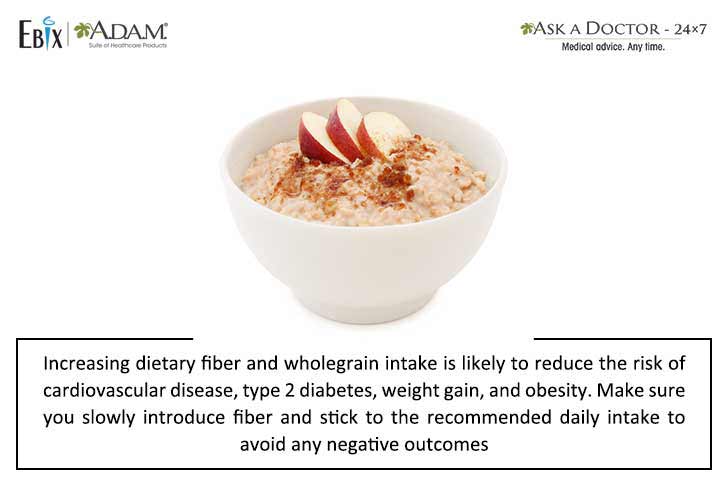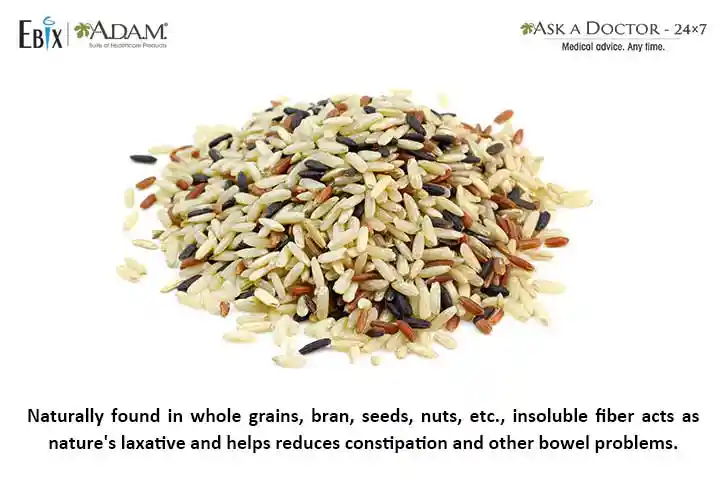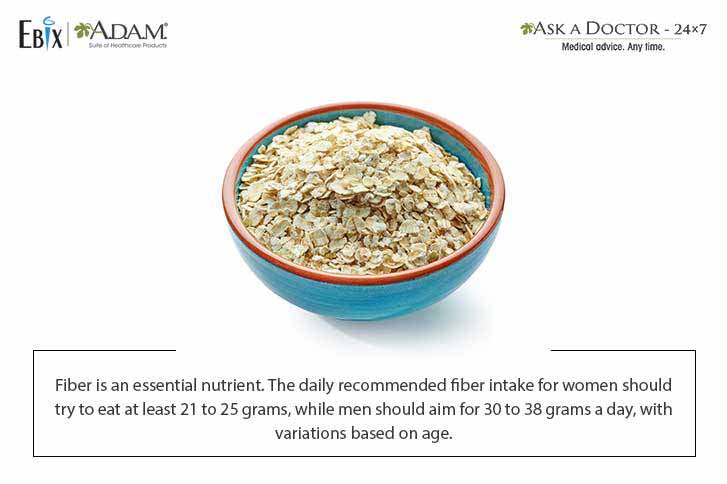Why Do You Need Fiber In Your Daily Diet?
Anyone who knows a thing or two about a healthy and nutritious diet identifies dietary fiber as the best source to prevent constipation. However, fiber can do much more than ensure regular bowel movements. Here is a closer look at this brilliant food component that makes it an important part of your daily diet.
Why is fiber important?

Fiber is a type of carbohydrate present in your food that isn't fully digested by the body. The reasons why it's important is because fiber-rich foods:
- Get digested slowly, and make one feel full quicker for a longer duration.
- Comprise nutrients in abundance and contain fewer calories.
- Reduce the risk of diabetes and heart disease.
- Tend to improve cholesterol and blood sugar levels.
What are the types and sources of Fiber?
Fiber is of two types: insoluble (also known as roughage) and soluble.
Insoluble fiber:

As the name suggests, it does not dissolve in water. Roughage aids in regular bowel movements and preventing constipation. It also controls the acidity levels in the intestines. Good sources of insoluble fiber include:
- Whole grains
- Brown rice
- Wheat Bran
- Vegetables such as carrots, cucumbers, zucchini, and leafy greens
- Nuts and seeds
Soluble fiber:

Soluble fiber is the lesser-known type of fiber. It is a viscous substance that dissolves in water. Soluble fiber has been shown to have positive effects on blood cholesterol and blood sugar. It also lowers the risk of heart disease and type 2 diabetes. Good sources of soluble fiber are:
- Beans, peas, lentils (daal)
- Oatmeal and oat bran
- Fruits such as apples, pears, mangoes, plums, kiwi, blackberries, strawberries, raspberries, peaches, dried apricots, prunes, and figs, to name some.
An important thing to note: Animal foods such as meat, poultry, eggs, and dairy do not provide any fiber.
Health benefits of Fiber

Fiber has a host of health benefits. A few of them include:
- Prevents obesity and promotes weight loss since it is low in calories. Also, it makes you feel full for a longer time, thereby discouraging overeating.
- Reduces the risk of atherosclerosis or the buildup of cholesterol-filled plaque in arteries.
- Decreases diabetes risk, as a high-fiber diet slows down sugar absorption, thus preventing sugar spikes after meals.
- Several studies have found a lower risk of heart disease in people who take a fiber-rich diet.
- A high-fiber diet also supports in preventing other colon problems such as diverticular disease (formation of pouches in the colon).
- Though the results could not be conclusively substantiated, experts think that increasing fiber intake could have a role in cancer prevention.
What is the recommended intake of Fiber?

The recommended fiber intake is about 25 grams daily for women and 38 grams daily for men. In general, a diet rich in plant foods such as whole grains, fruits, and vegetables would ensure optimum fiber intake. Simple changes such as taking fruits instead of fruit juice and adding beans to your soups and salads can increase your daily fiber intake.
It can be safely concluded that fiber is an integral and important part of digestive health. Having said that, if you are on any type of medication, you should consult your physician for specific fiber recommendations.
For any queries related to dietary fiber nutrition, consult a Dietician.
Ask a Specialist
Recent Questions


